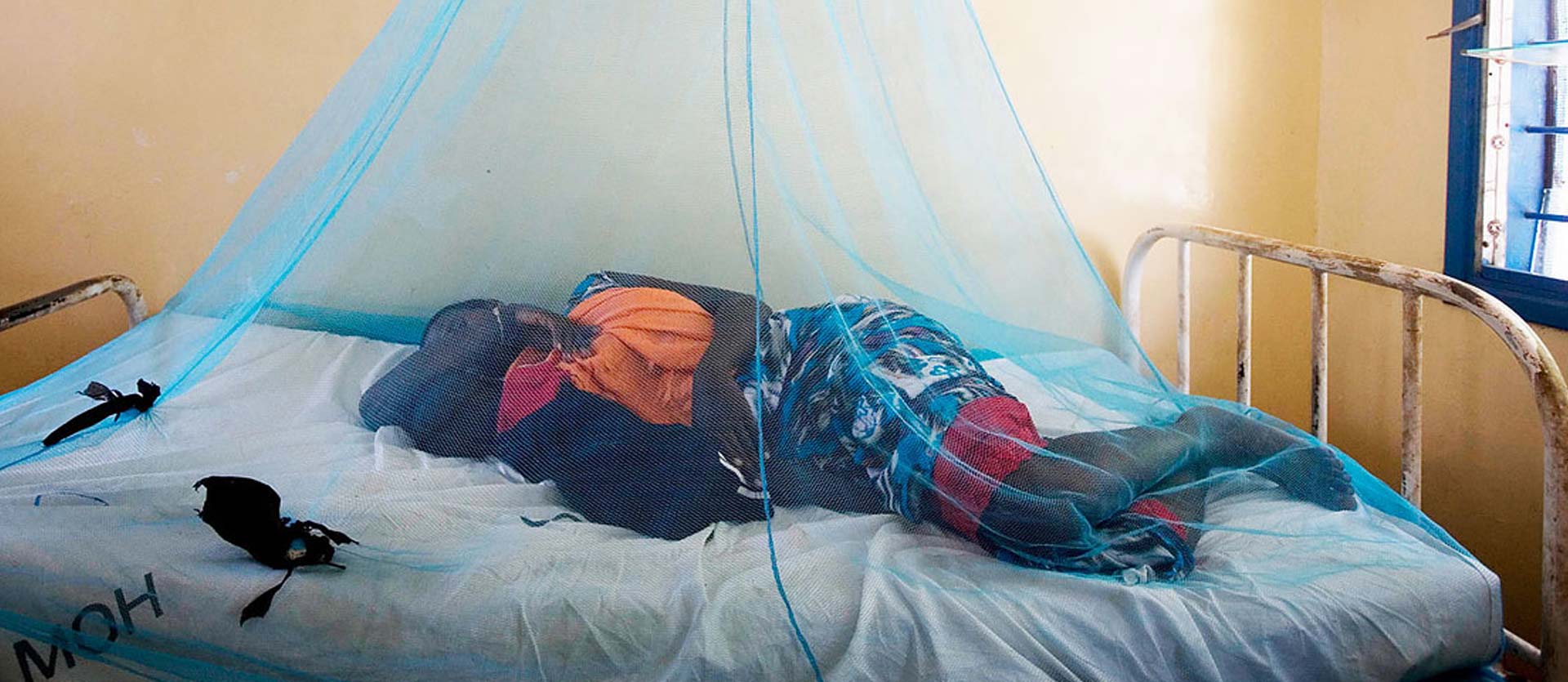![]()
Malaria
MCSP’s malaria strategy is woman-centered, recognizing that women are the primary care takers of children under five and are themselves at higher risk for the disease during pregnancy. Working closely with national malaria control programs and maternal, newborn and child health programs, we strengthen country health systems across the continuum of care. The Program builds capacity for lasting results in malaria in pregnancy (MiP), facility-based case management, integrated community case management, and community involvement, addressing comprehensive malaria prevention and treatment needs.
Through partnerships at the global and country levels, MCSP advanced evidence-based policies and successful approaches for achieving malaria prevention and treatment goals, leading to universal coverage and, eventually, elimination of the disease. Specifically, MCSP:
- Contributed to the Roll Back Malaria partnership, which aims to reduce the global burden of malaria morbidity and mortality by reaching universal coverage and strengthening health systems;
- Supported the President’s Malaria Initiative goal of reducing malaria deaths by half in target countries by reaching at least 85% of the most vulnerable groups (children under five and pregnant women) with proven and effective prevention and treatment measures;
- Assisted ministries of health in countries affected by malaria, contributing to increased use of malaria prevention and treatment measures including: intermittent preventive treatment for pregnant women; distribution and use of long-lasting insecticide treated bed nets; and introduction and scale up of rapid diagnostic tests and artemisinin-based combination therapies. Many of these interventions were carried out at the community level.
- Promoted use of data for decision-making in malaria programming through standardization of malaria indicators and strengthening of routine data collection systems.
Fortunately, malaria is an entirely preventable and treatable disease, and MCSP increased control measures to dramatically reduce the malaria burden in many places, including in pre-elimination contexts.
To learn how MCSP worked to end malaria for good, visit our malaria microsite.

